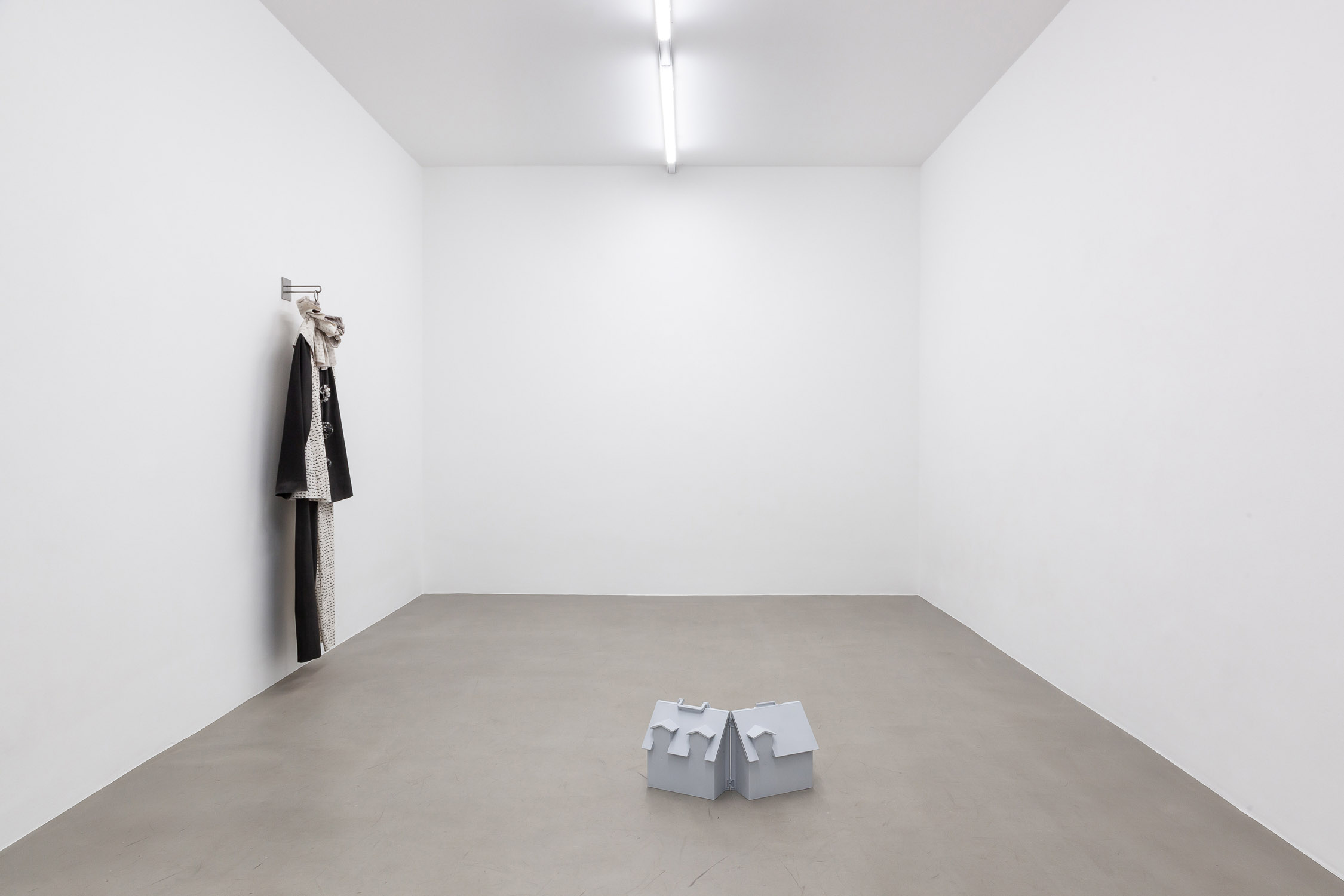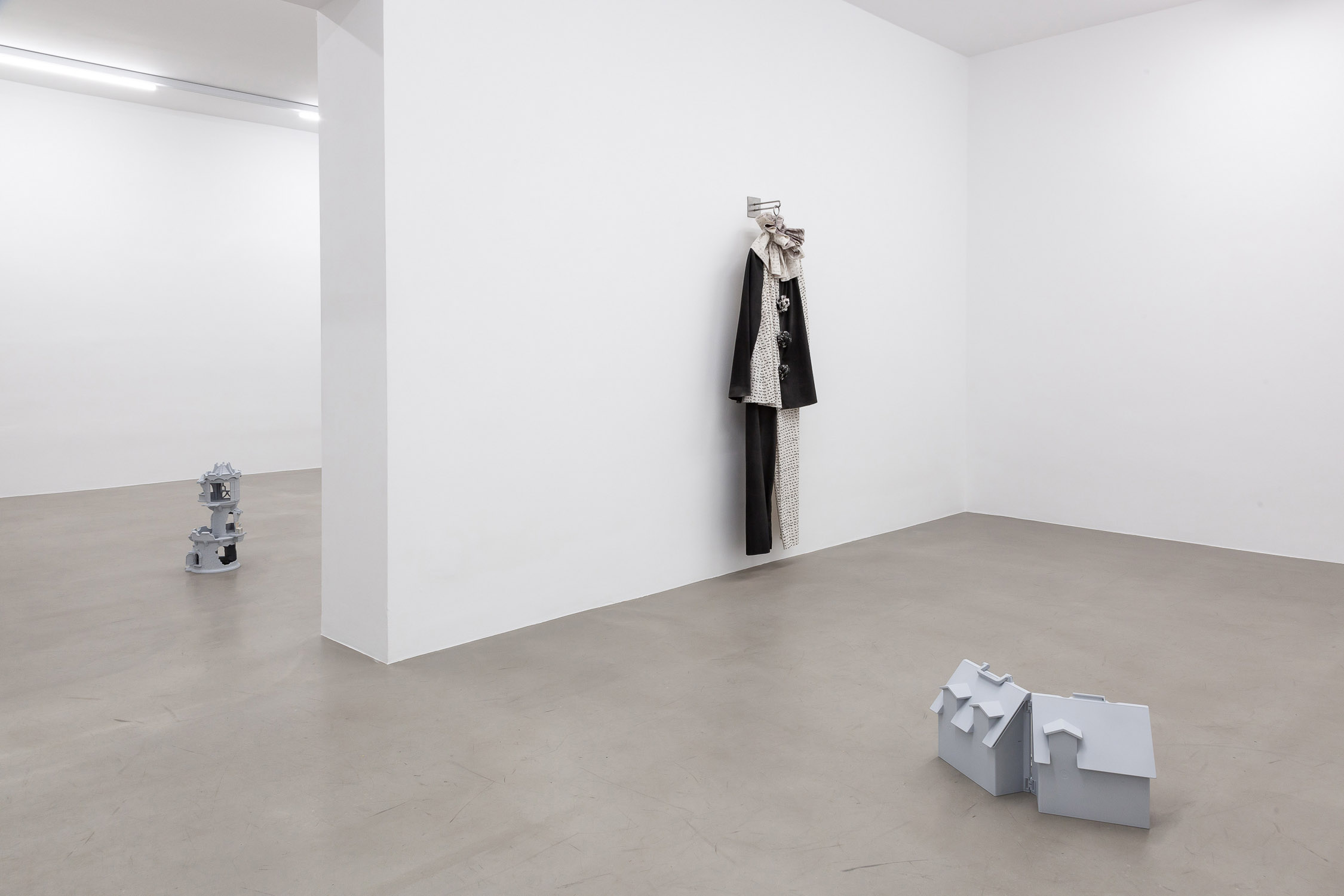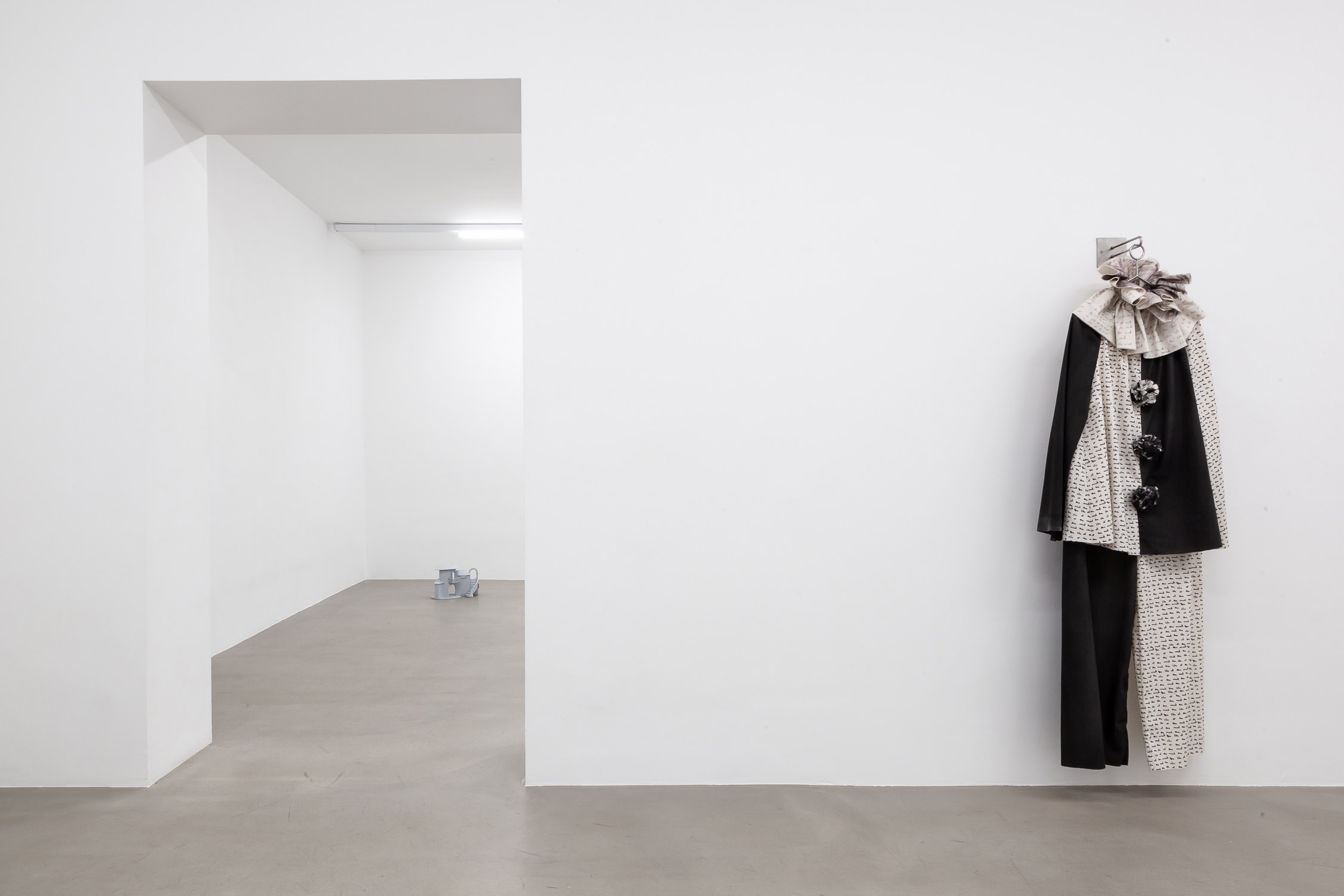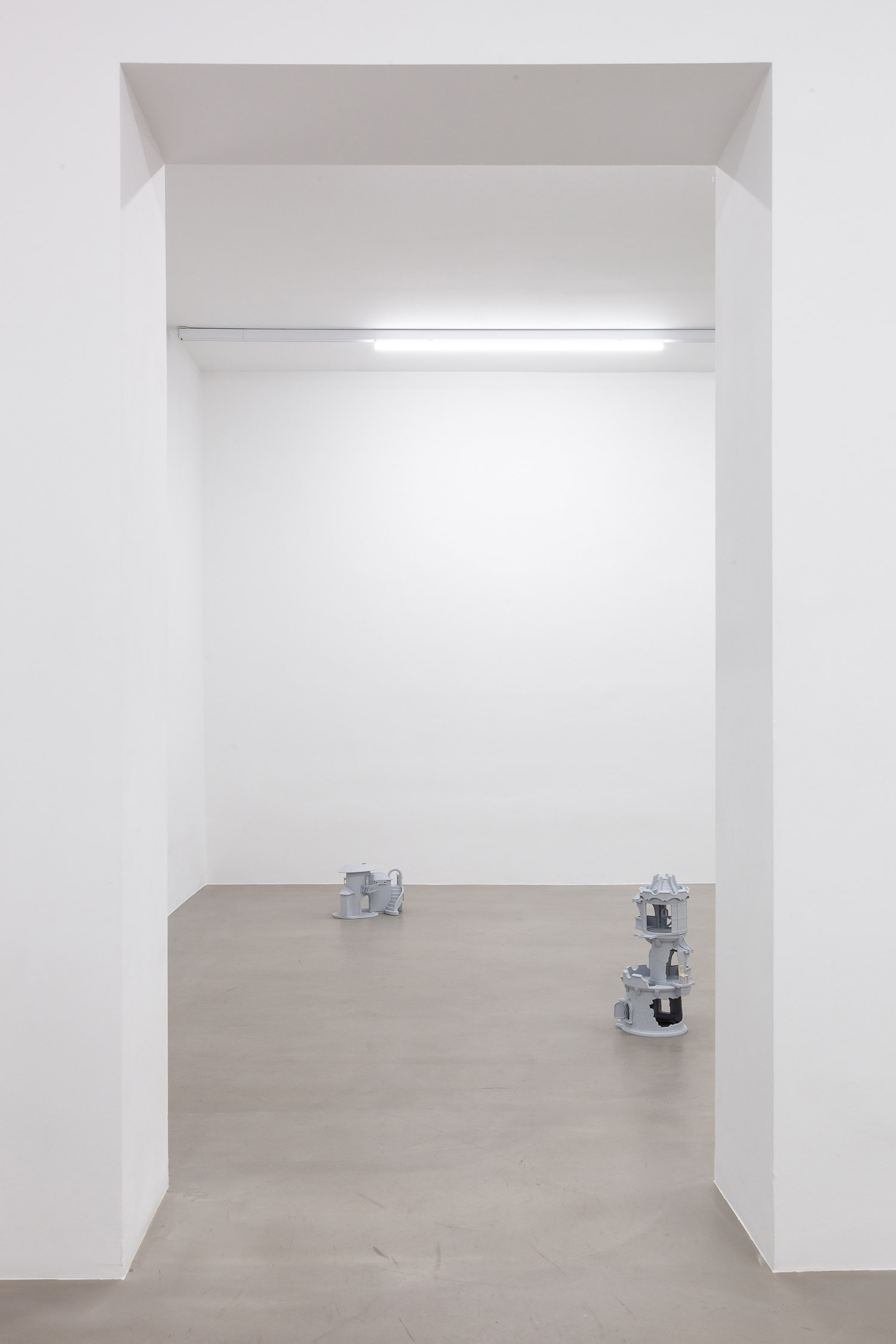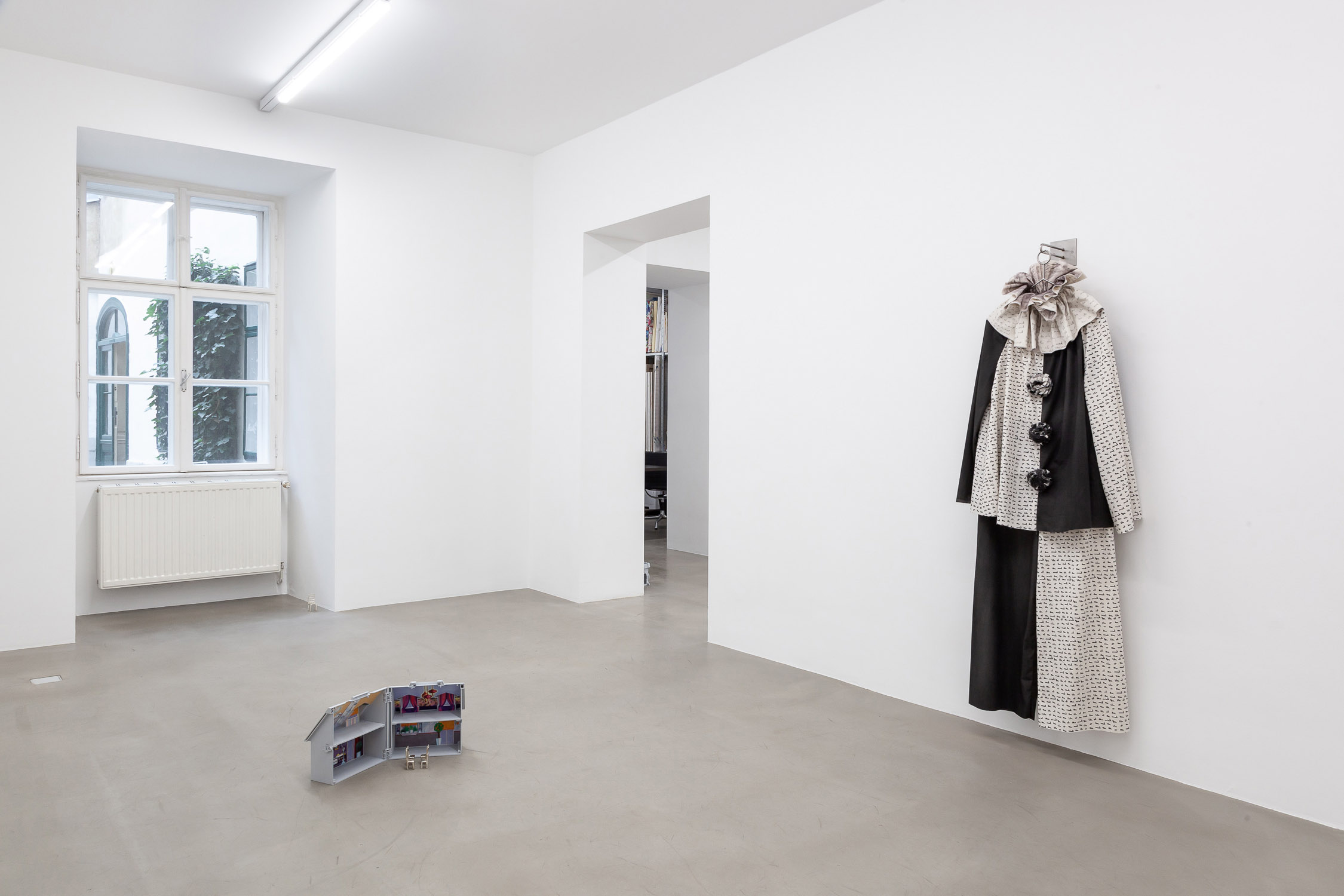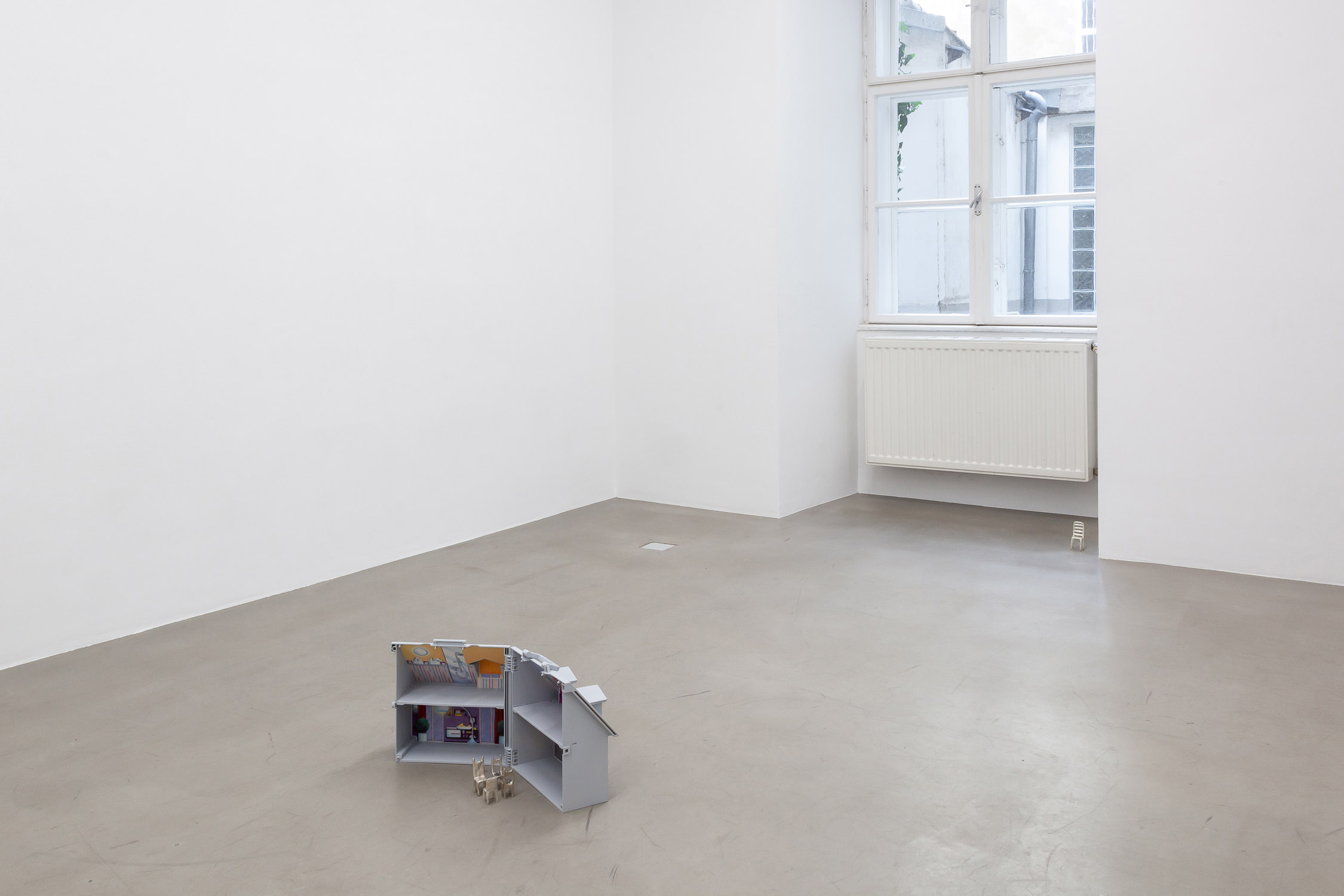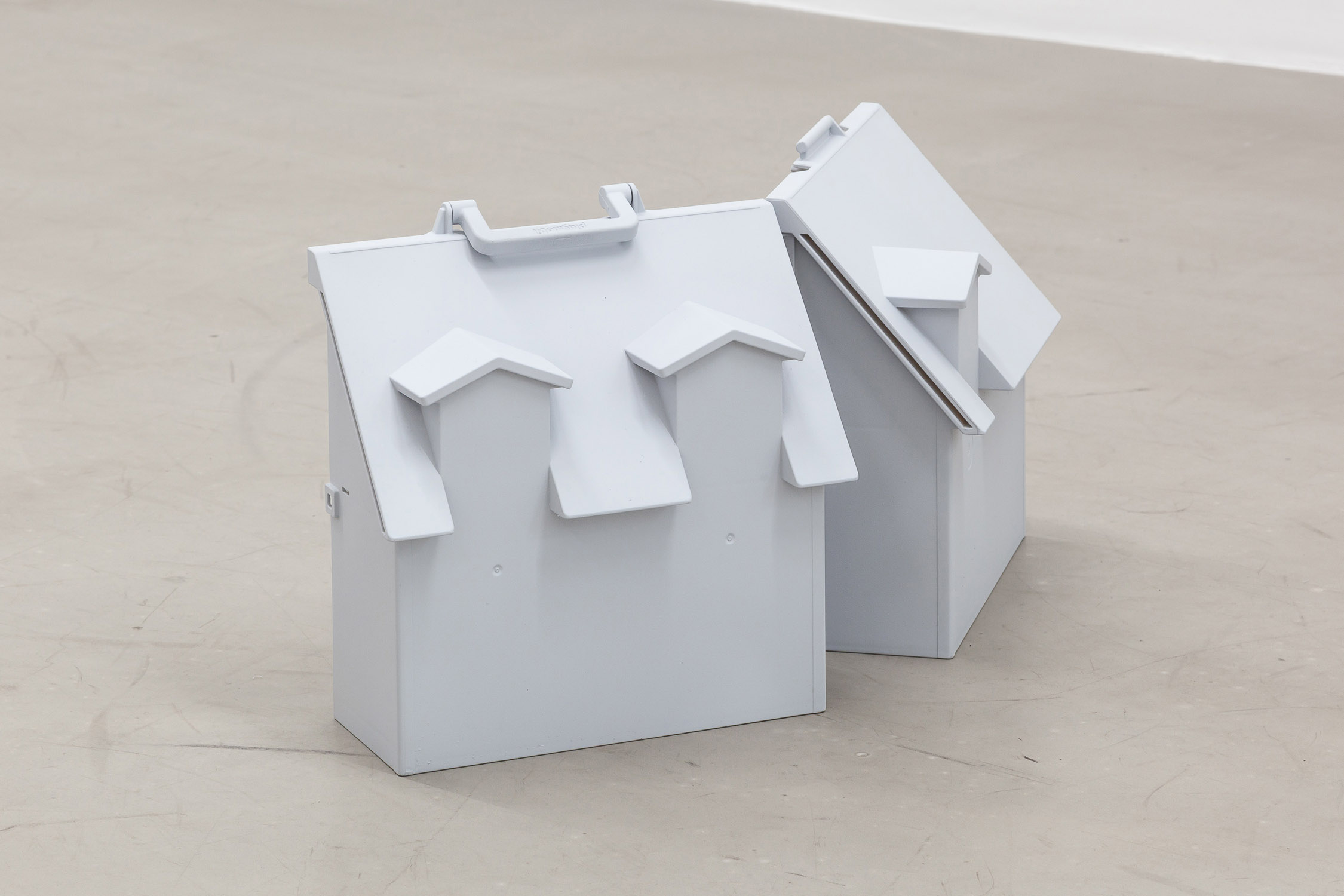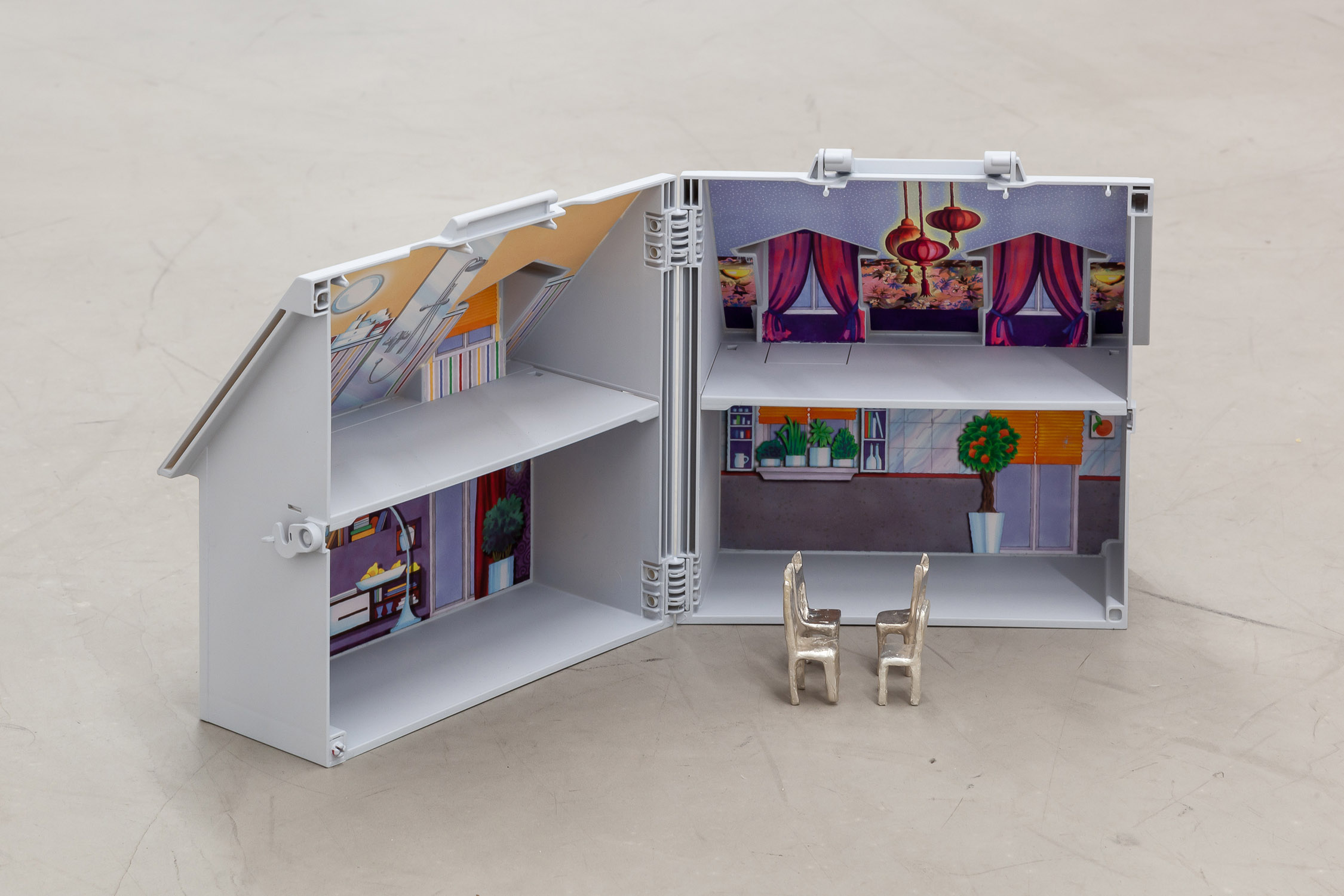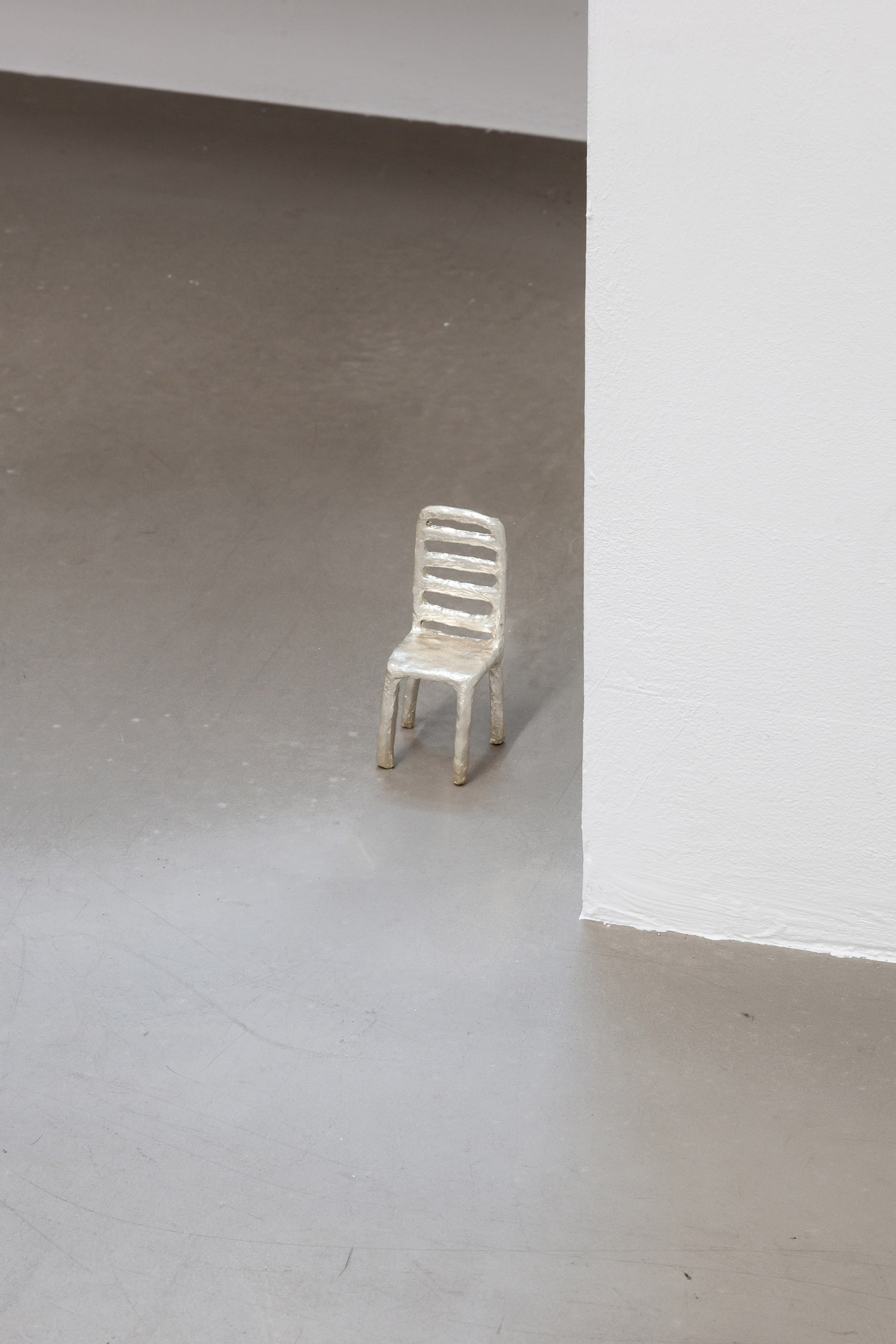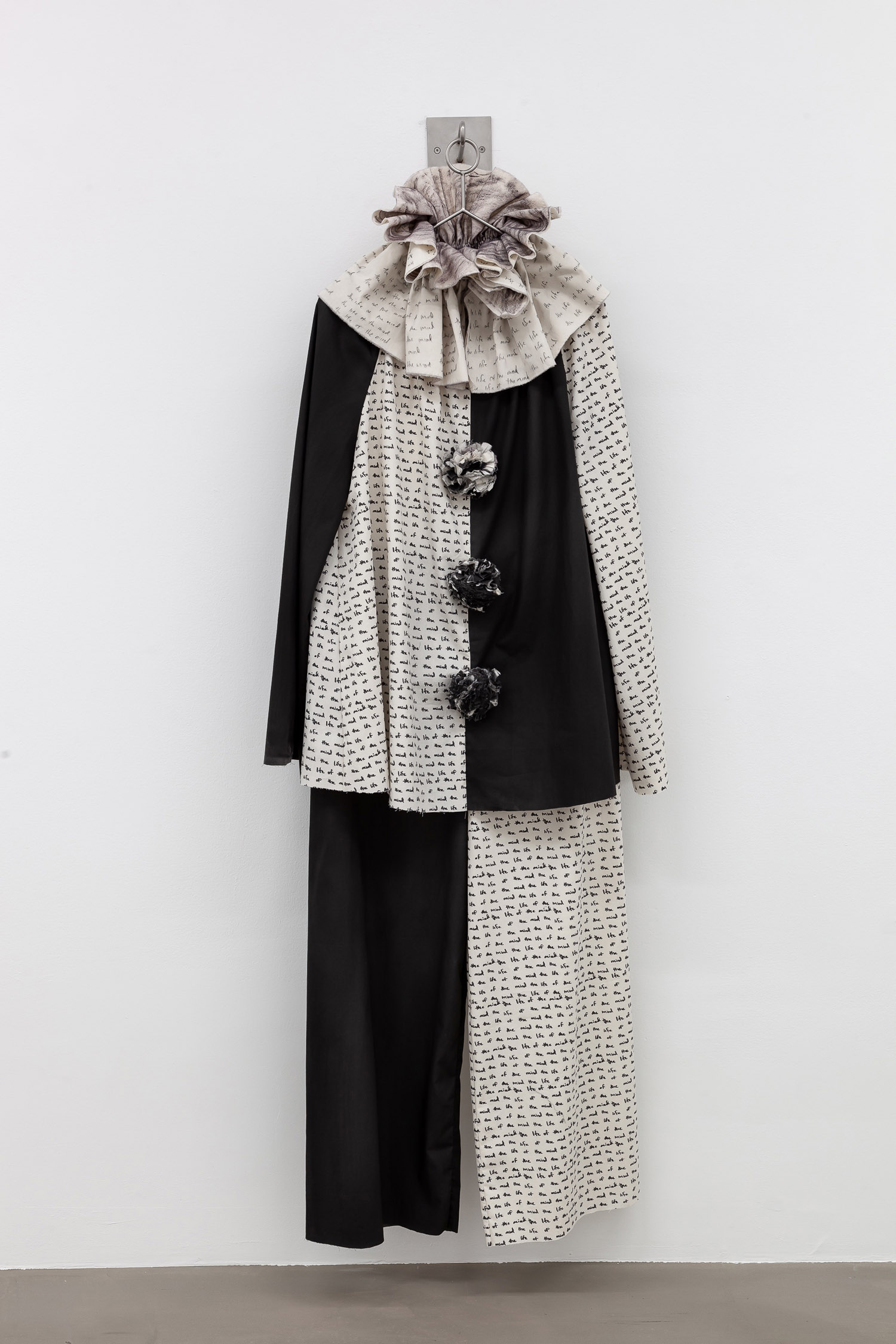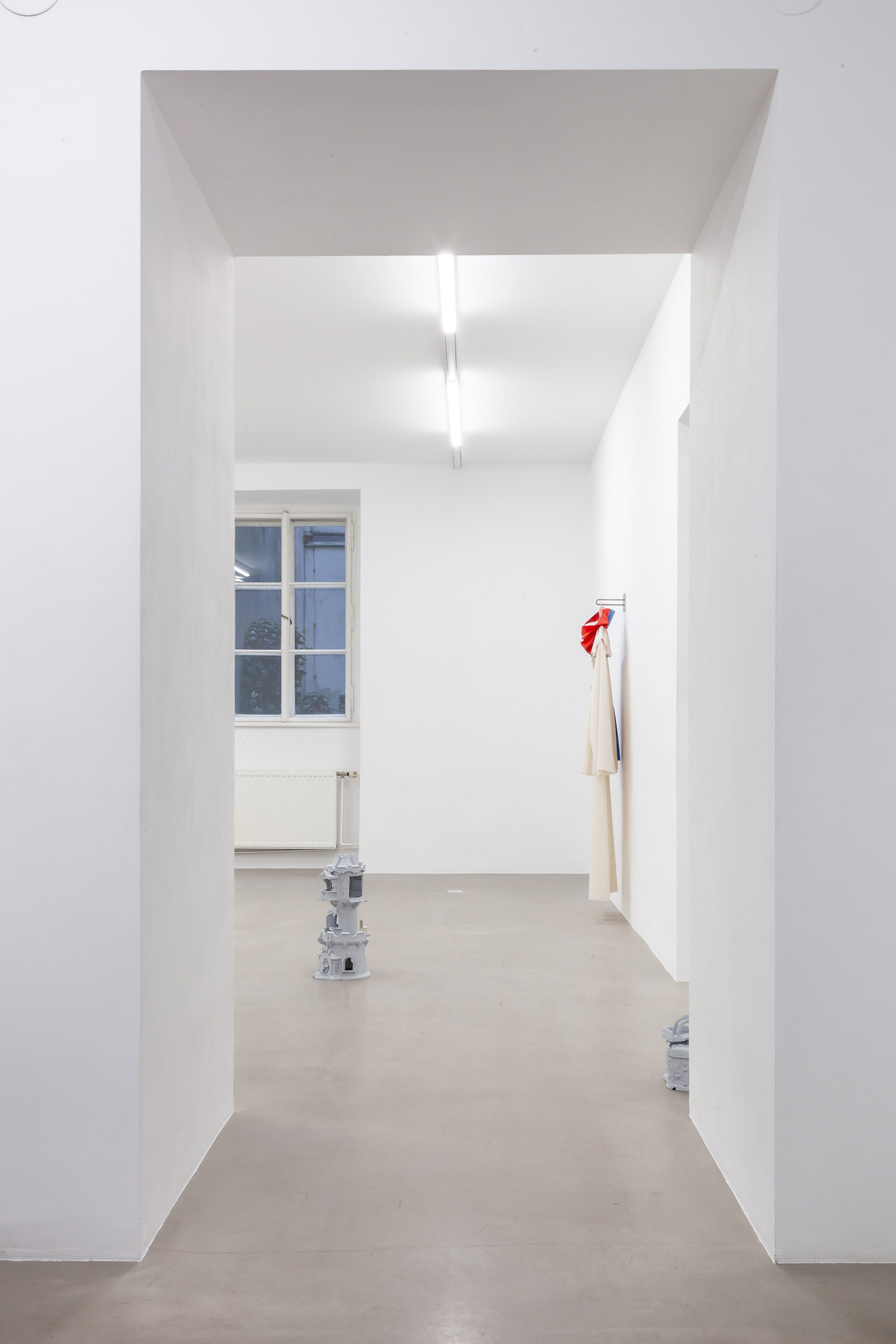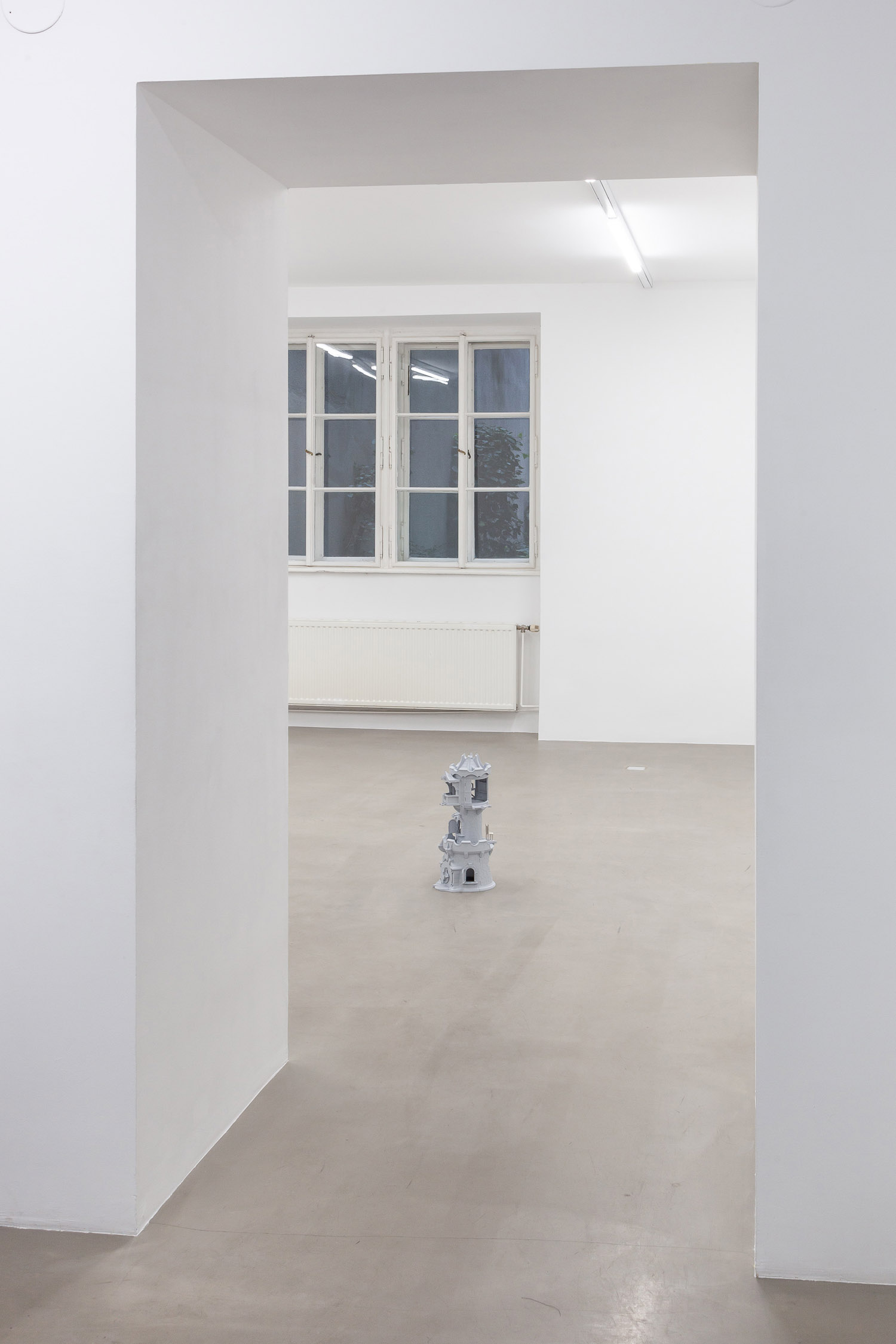From behind the plastic windows of cardboard boxes that line department-store shelves, “My Life As” dolls promise purchasable pathways towards socially sanctioned identities. Dressed in carefully chosen garments and accessories, the eighteen inch figures that comprise the dolls of the collection exist within the lexicon of “American Girl,” “Our Generation,” “Götz”— toys that fill formative years with lessons of the inextricable link between the accumulation of objects and formation of identity. To become a riding doll is to own jodhpurs and a whip, “My Life As Cook” grips a whisk while “My Life As Student” sits in a small white desk purchasable for $9.97. Stuff renders life classifiable and grants modes of being names.
Ellen Schafer’s exhibition, stuff, employs recognizable forms to complicate the relationship between the body, quotidian things, and notions of self-construction. Works that are related to but not reproductions of familiar items recall the body while baring it from its habituated relationship to consumer goods. An attention to playthings emphasizes the culpability of those everyday objects considered most innocent in conditioning an articulation of self dependent on consumption and ownership.
The small metal chairs of My Life As Chair I-X rest upon second-hand toys found by Schafer in Viennese thrift stores. To locate the chairs within these structures that have served as gateways to imagined worlds and fantastical ways of being, is to reference the ideal self’s intimate relation to property and plasticity. The chairs themselves are shaped by hand from wire and epoxy and cast in solid silver and silver-plated brass with the assistance of a Los Angeles jeweler. Silver-plating, a technology that accompanied the industrial turn, brought with it a perversion of reality and the accessibility of bourgeois values that mask genuine class distinctions. Layers of gray paint emphasize the formal propositions of the toy plinths and erase specificities that imply limitations.The artist’s hand remains in the chairs’ irregularities and difference is both masked and affirmed by a modern reliance on surface to supply meaning.
Two wall-mounted garments held by closed loop hangers further attend to notions of surface. Suit IV & V amend the traditional Pierrot costume by incorporating hand-painted as well as digitally printed muslin fabric. As the only commedia character without a mask, Pierrot’s identity is particularly dependent on his dress. In the centuries since his origin, the stock character has been appropriated to serve varying cultural movements. Writers of the French Décadents movement formed an allegiance between artist and clown whose artifice they saw as a destabilizing force. The Symbolists found in Pierrot a lonely fellow sufferer, modernists considered the character an alienated observer of the human condition like them. David Bowie claimed “I’m Pierrot. I’m everyman.” With each appropriation the suit changes its form but recognition endures. One suit is made from scraps of previous projects, and even that which calls itself new is bound to a past.
Both My Life As Chair I-X and Suit IV & V speak to wearable objects. In their making and materiality the chairs are jewelry like. The smallest chairs are reminiscent of charms for bracelets, objects that operate according to a logic in which identity presupposes acts of collection and a commitment to arbitrary systems of value. Charm bracelets girdle the individual in accumulated symbolic goods often before they can speak. Yet neither the silver and silver-plated chairs, nor the hand-painted costumes are to be worn. My Life As Chair I-Xhave no bails and Suit IV & V are locked to their armatures. The quotidian items refuse expected roles though unconventional fastenings or lack thereof. As Schafer points to how consumption resonates with personal and social meaning, the complexities of an attachment to things is laid bare. For these works know that sustained consumption depends on the failure of attachment, since a secure relationship with a thing eliminates the desire for something else.
-Exhibition text by Sophia Weltman
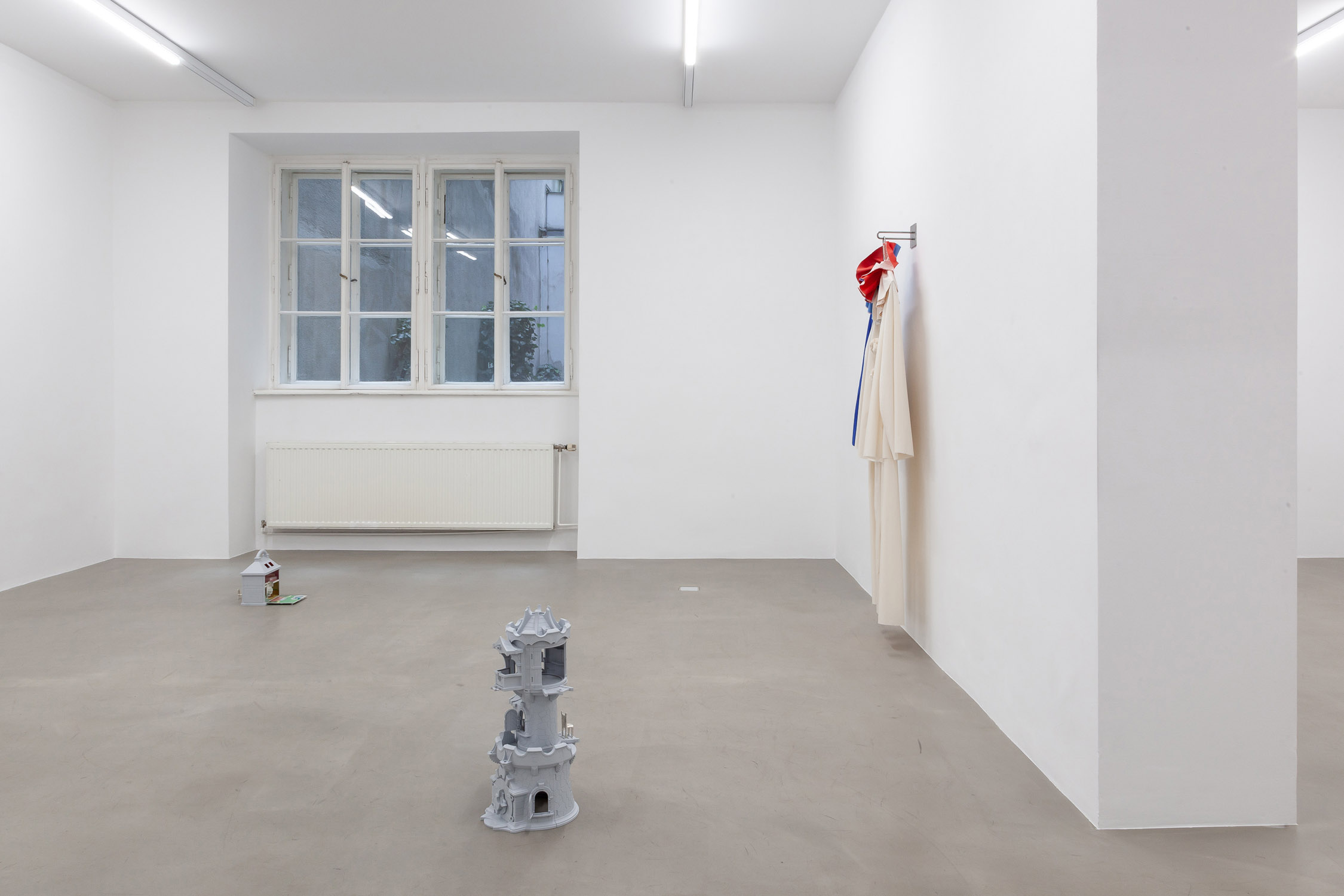
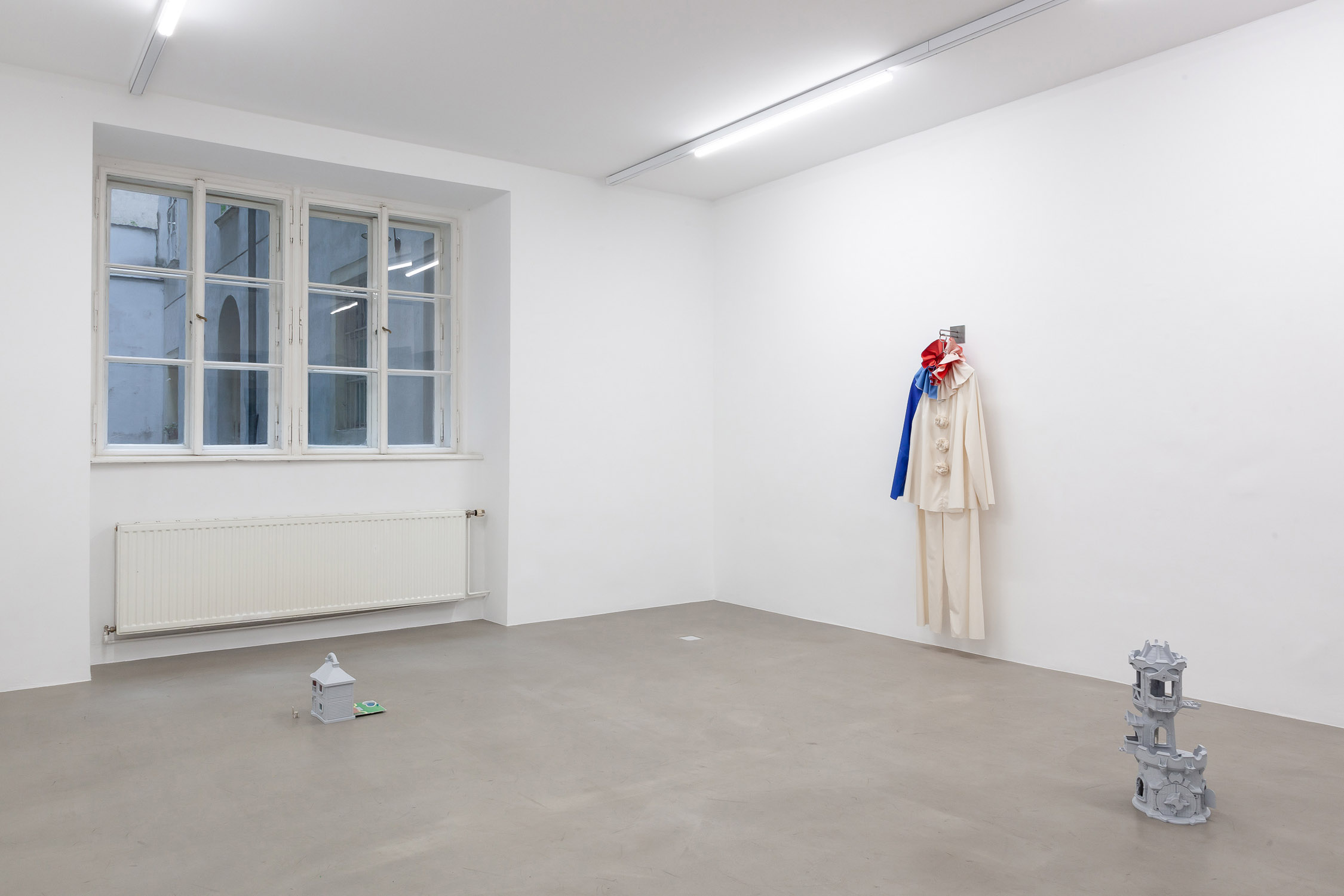
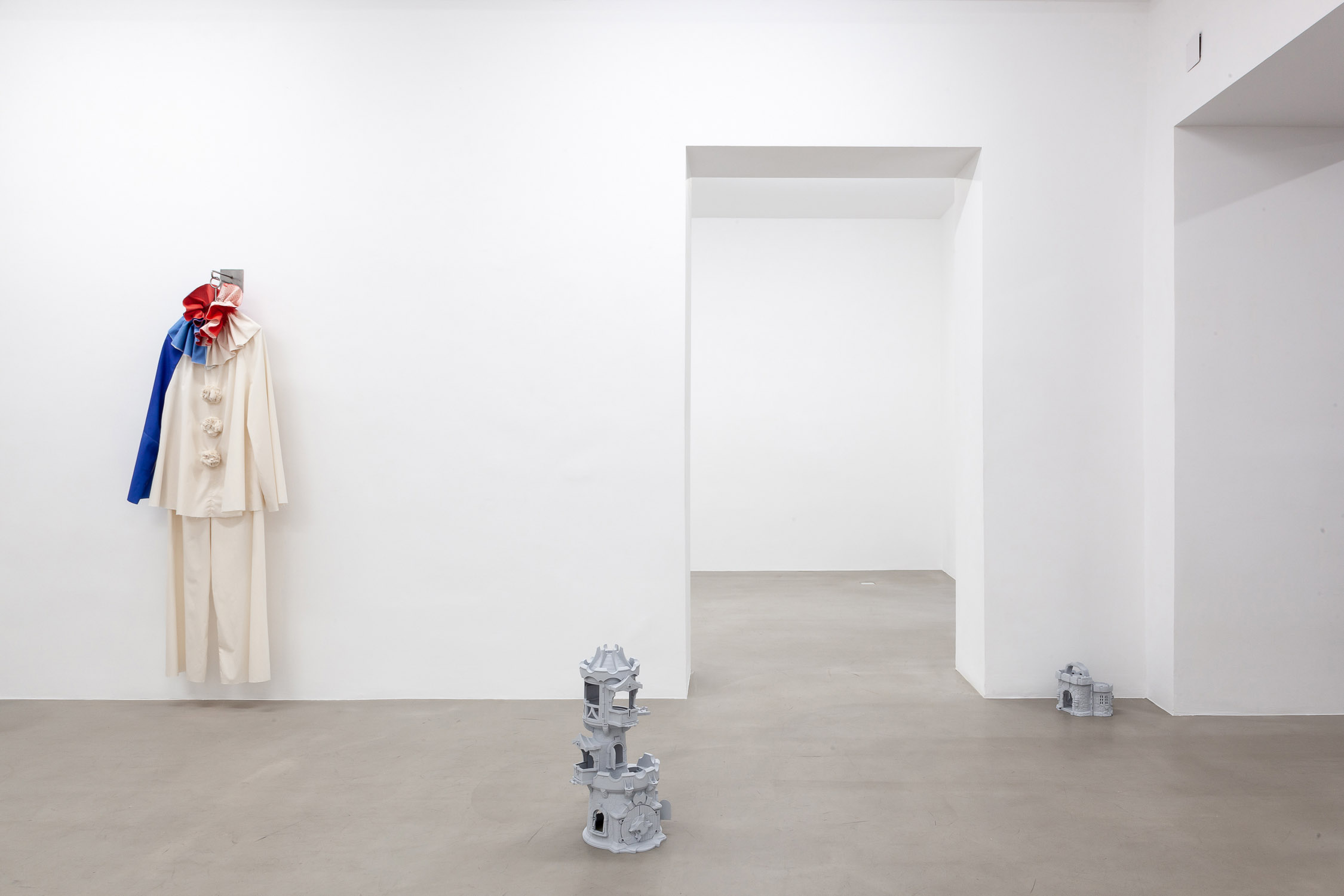
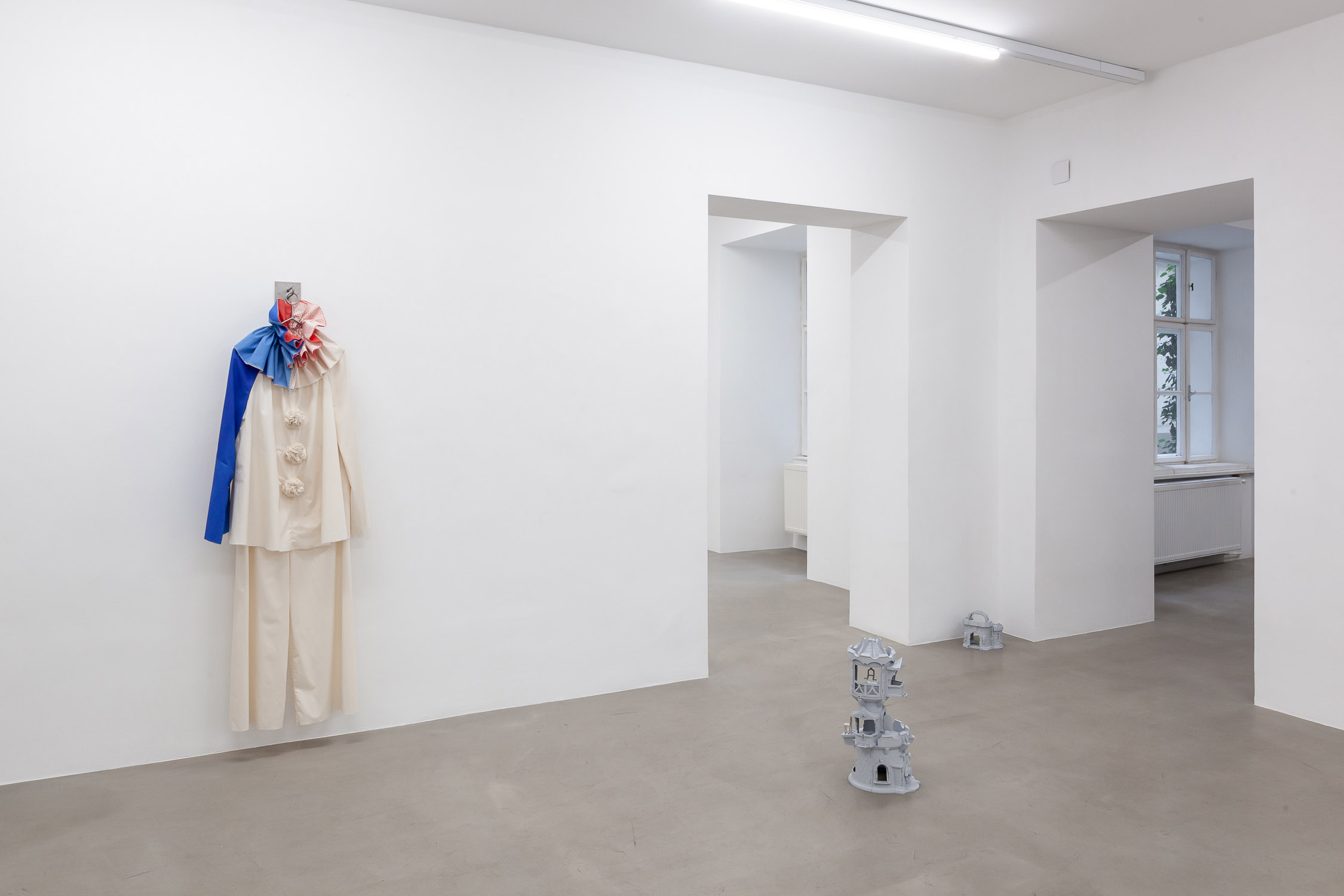
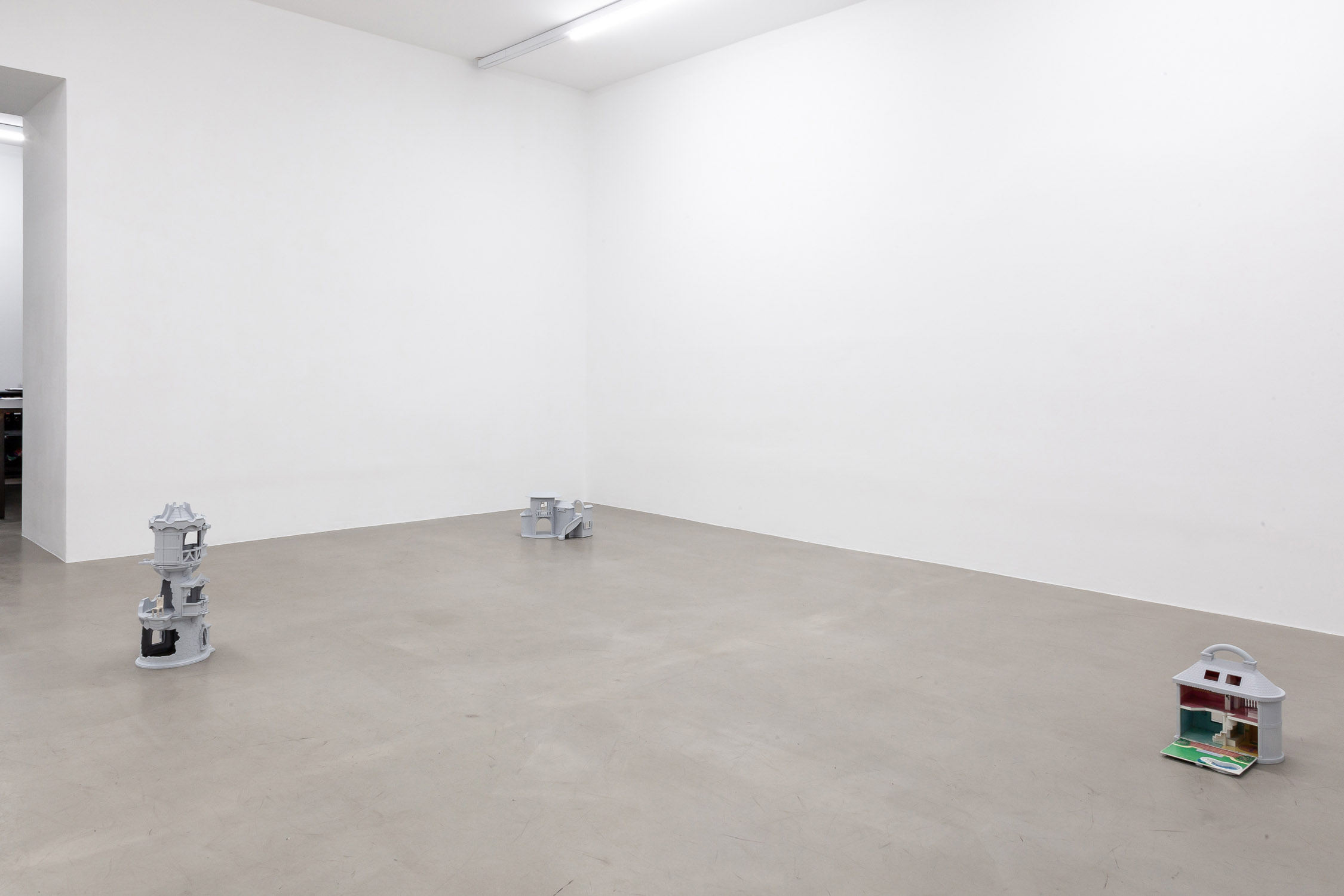
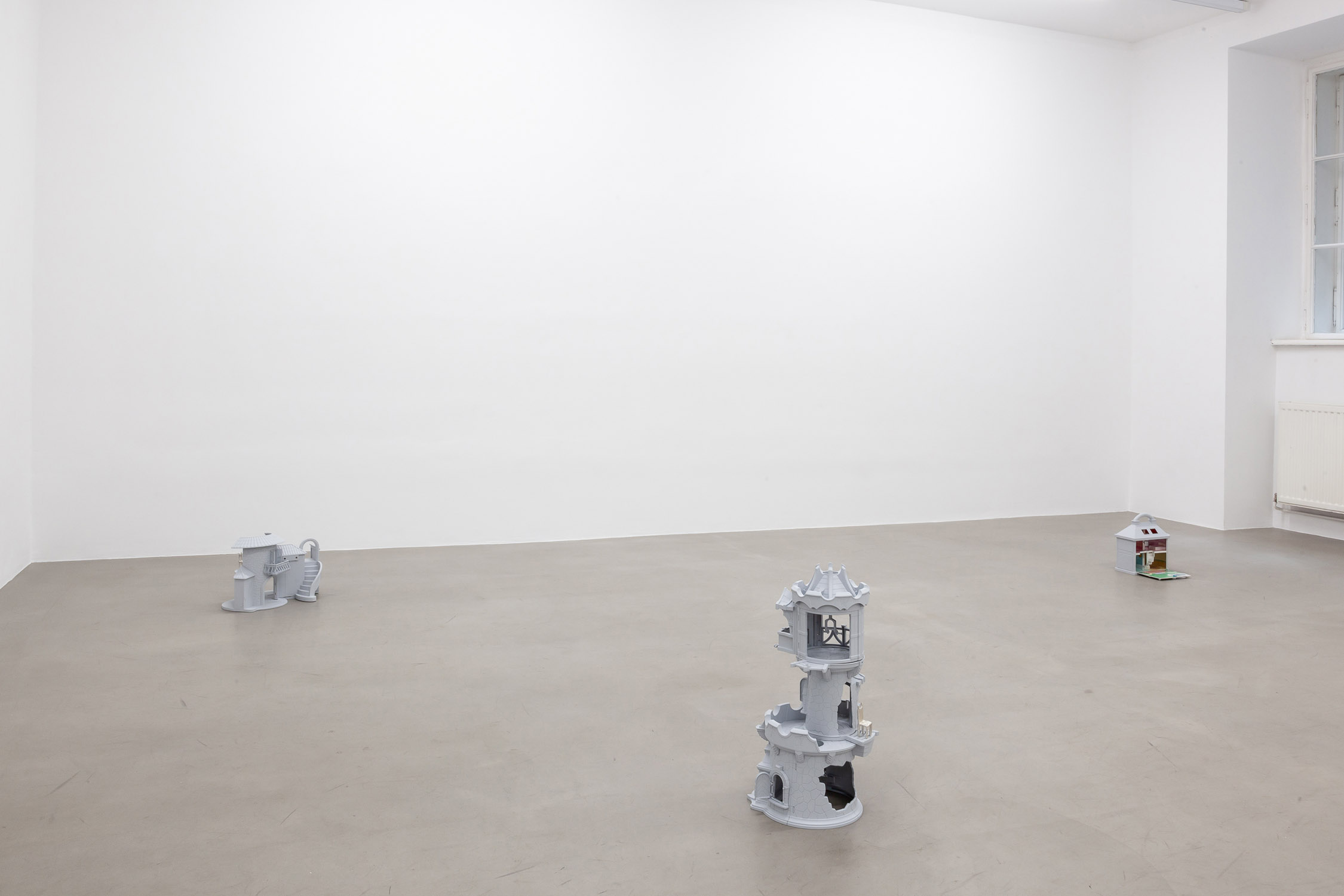
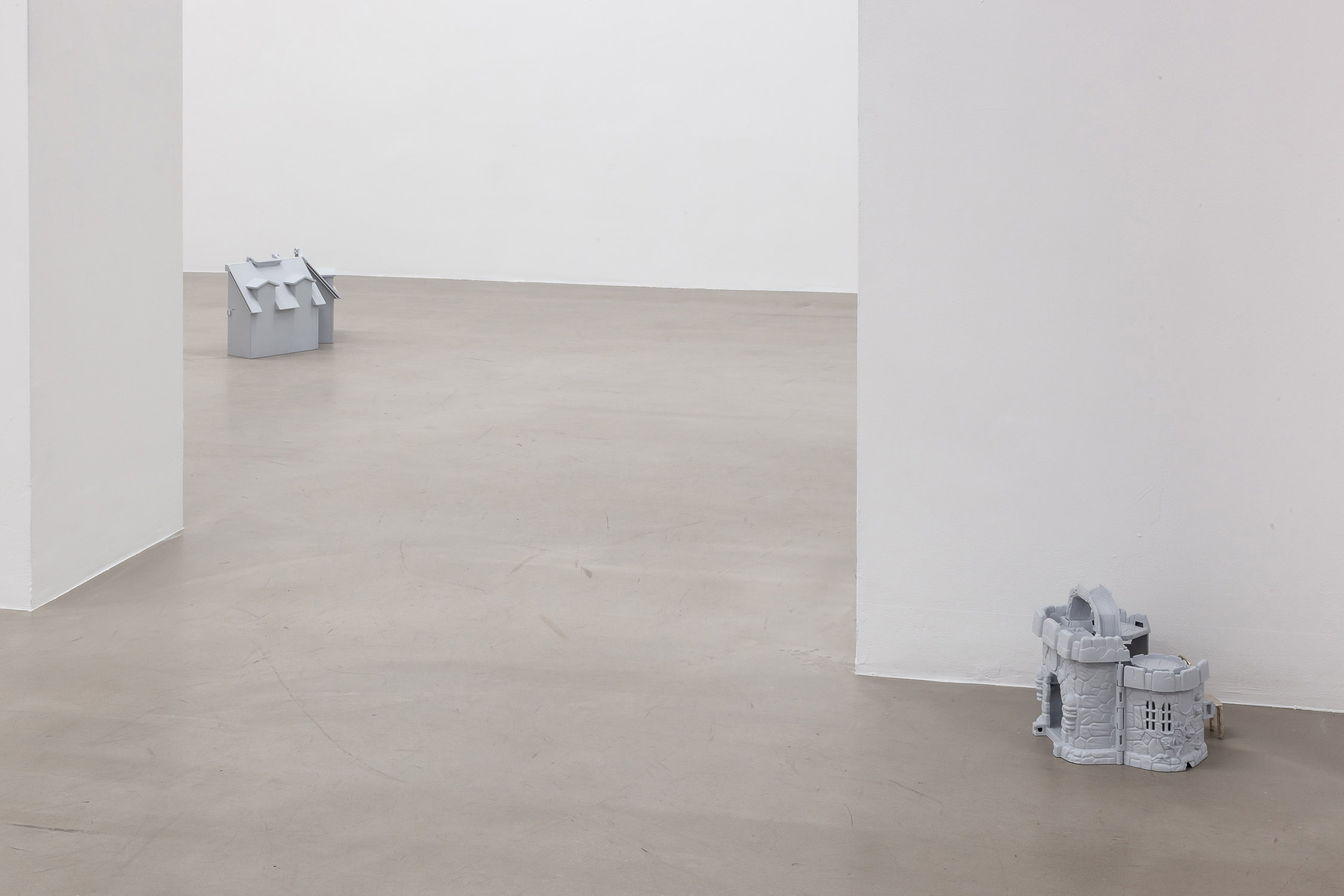
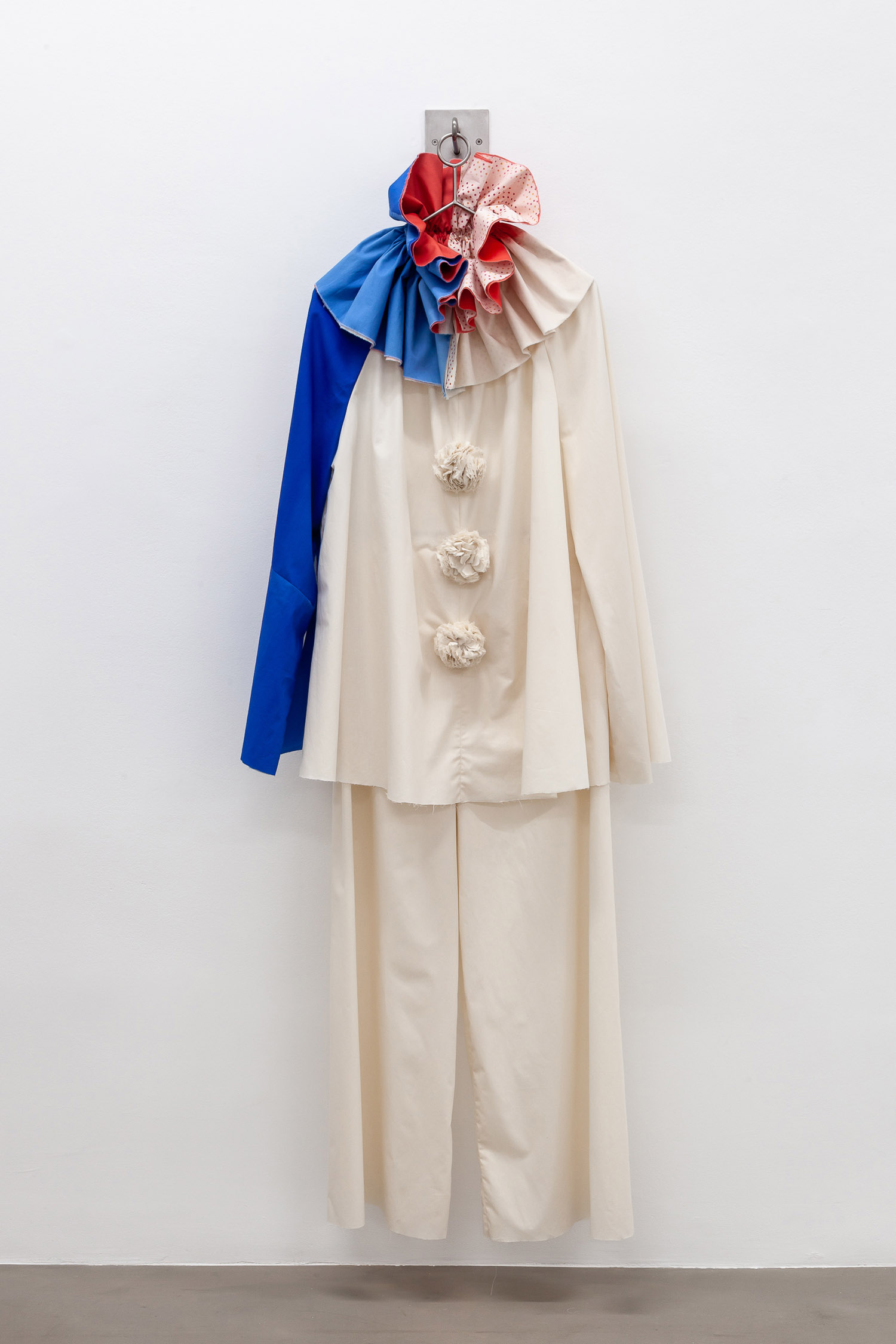
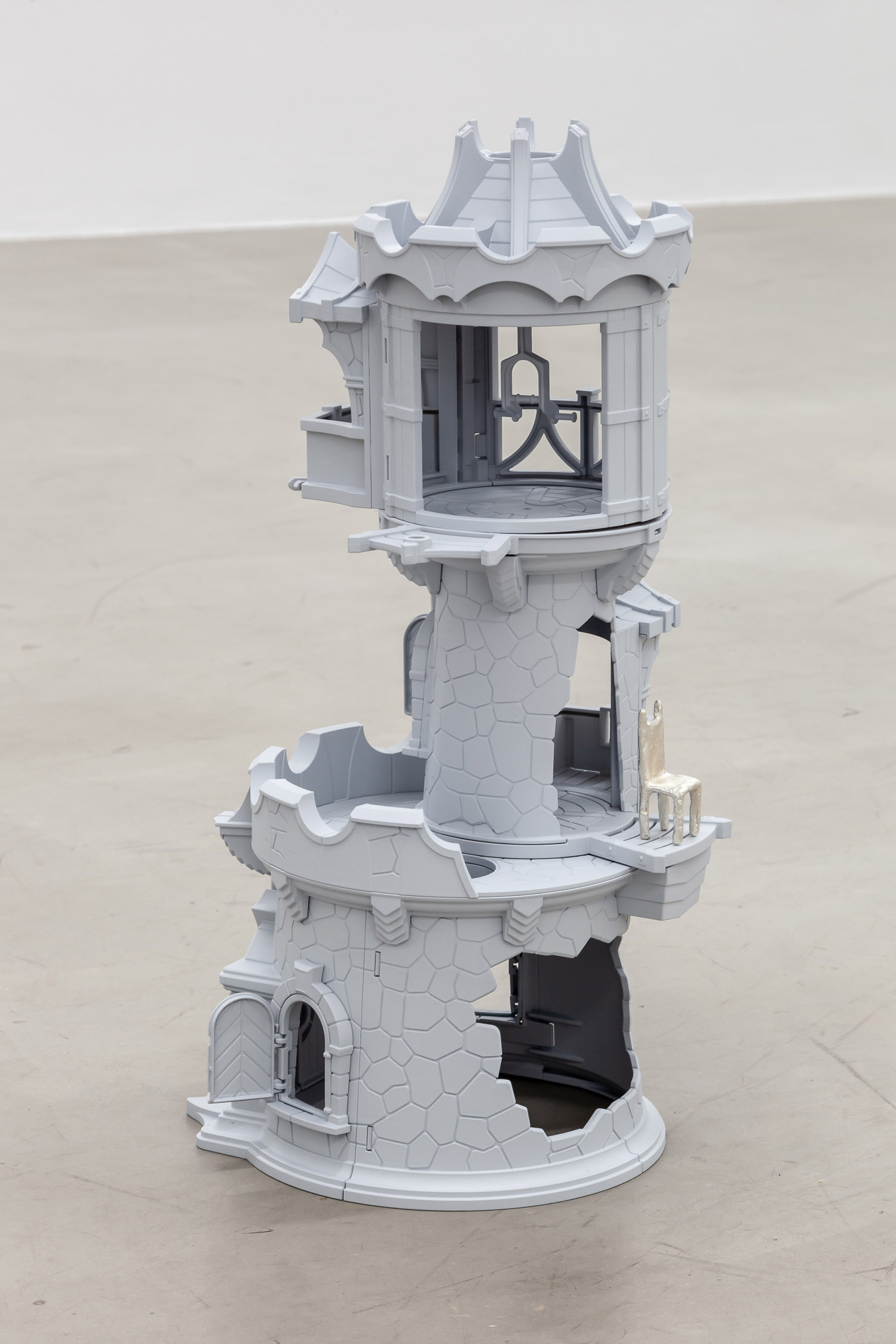
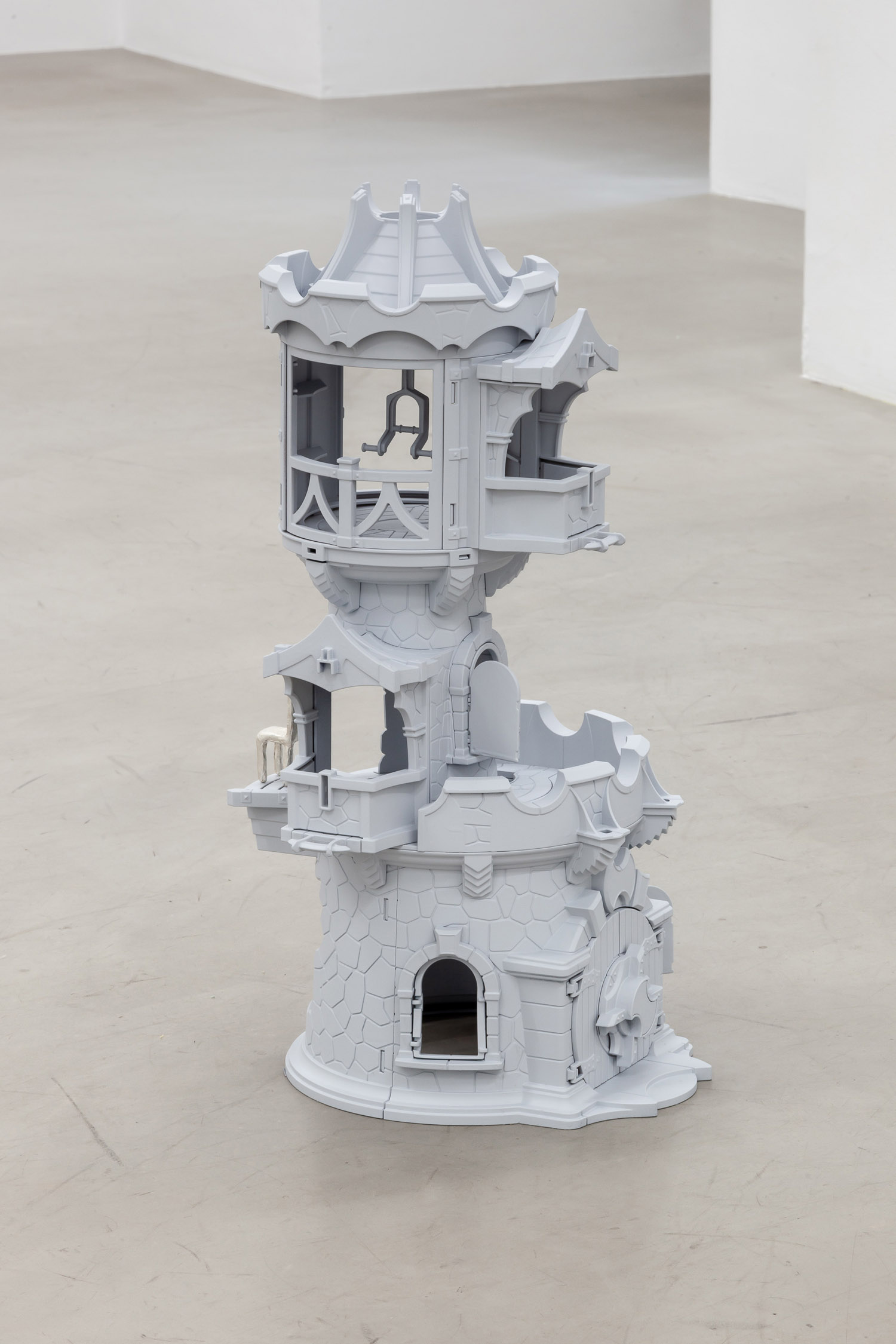
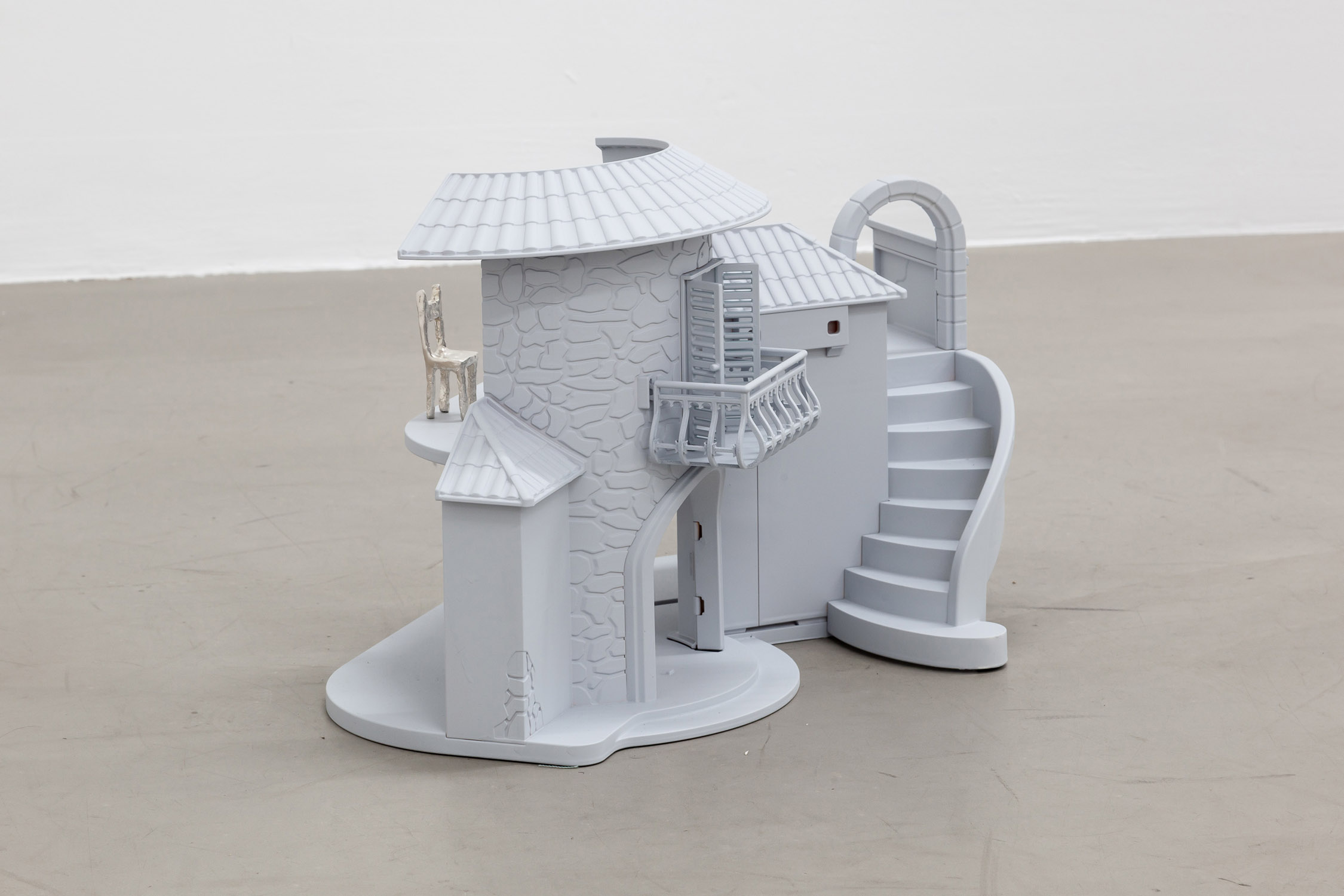
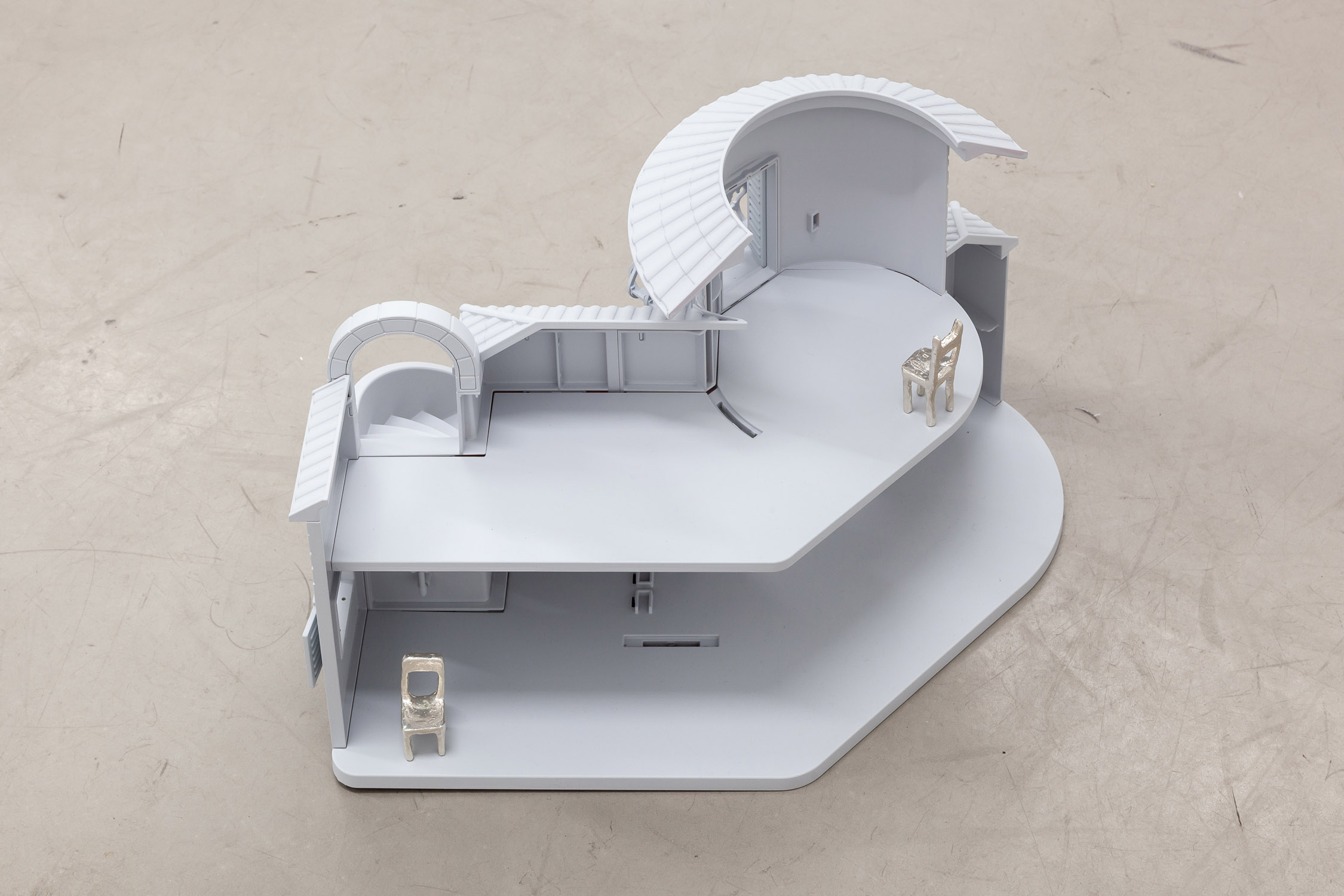
Right: Ellen Schafer, My Life As Chair II, 2024, cast solid sterling silver, 6.5 x 2.5 x 2.5 cm, © the artist and Wonnerth Dejaco. Photo: Flavio Palasciano
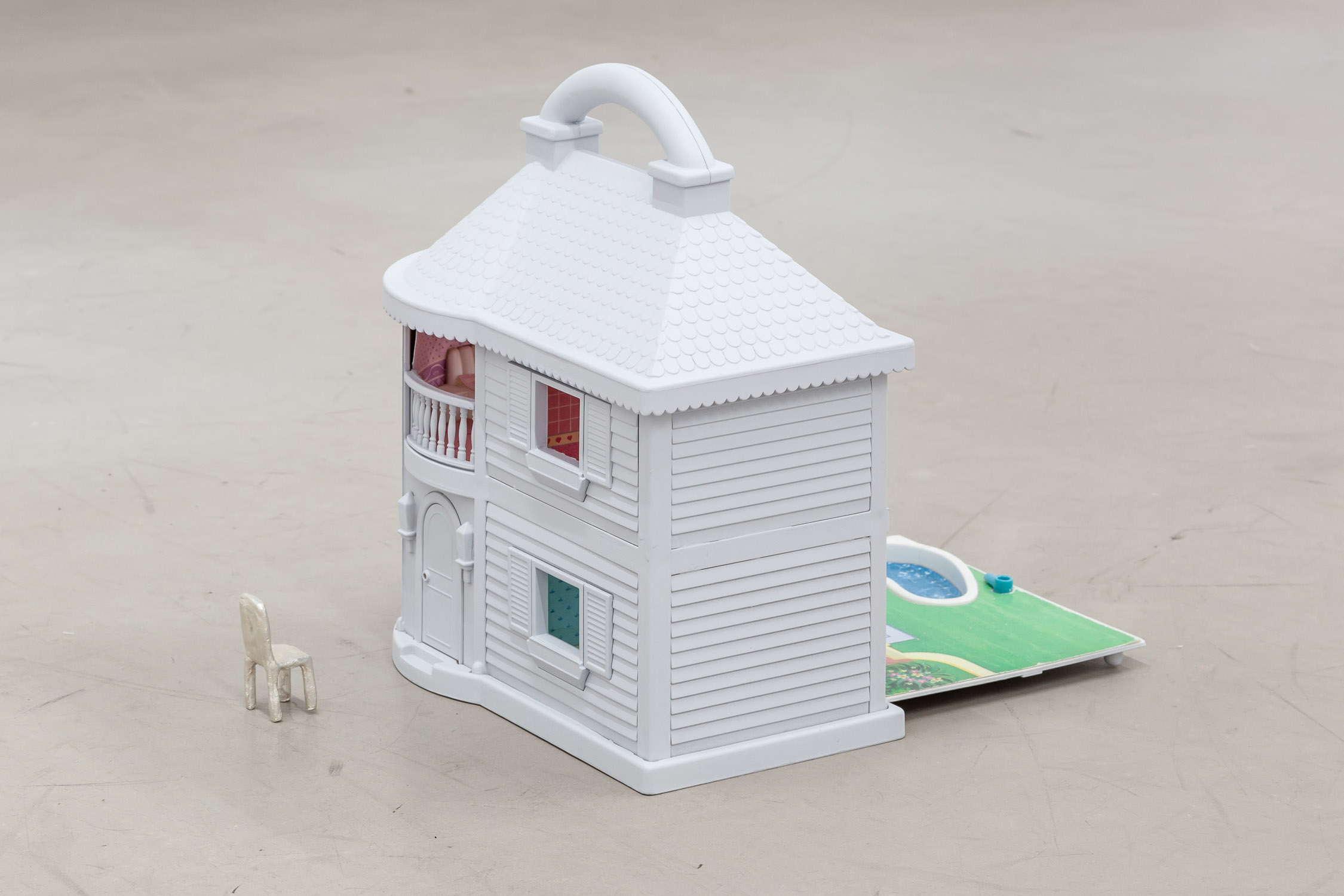
Right: Ellen Schafer, House III, 2024, toy, paint, 28 x 28 x 24 cm, © the artist and Wonnerth Dejaco. Photo: Flavio Palasciano
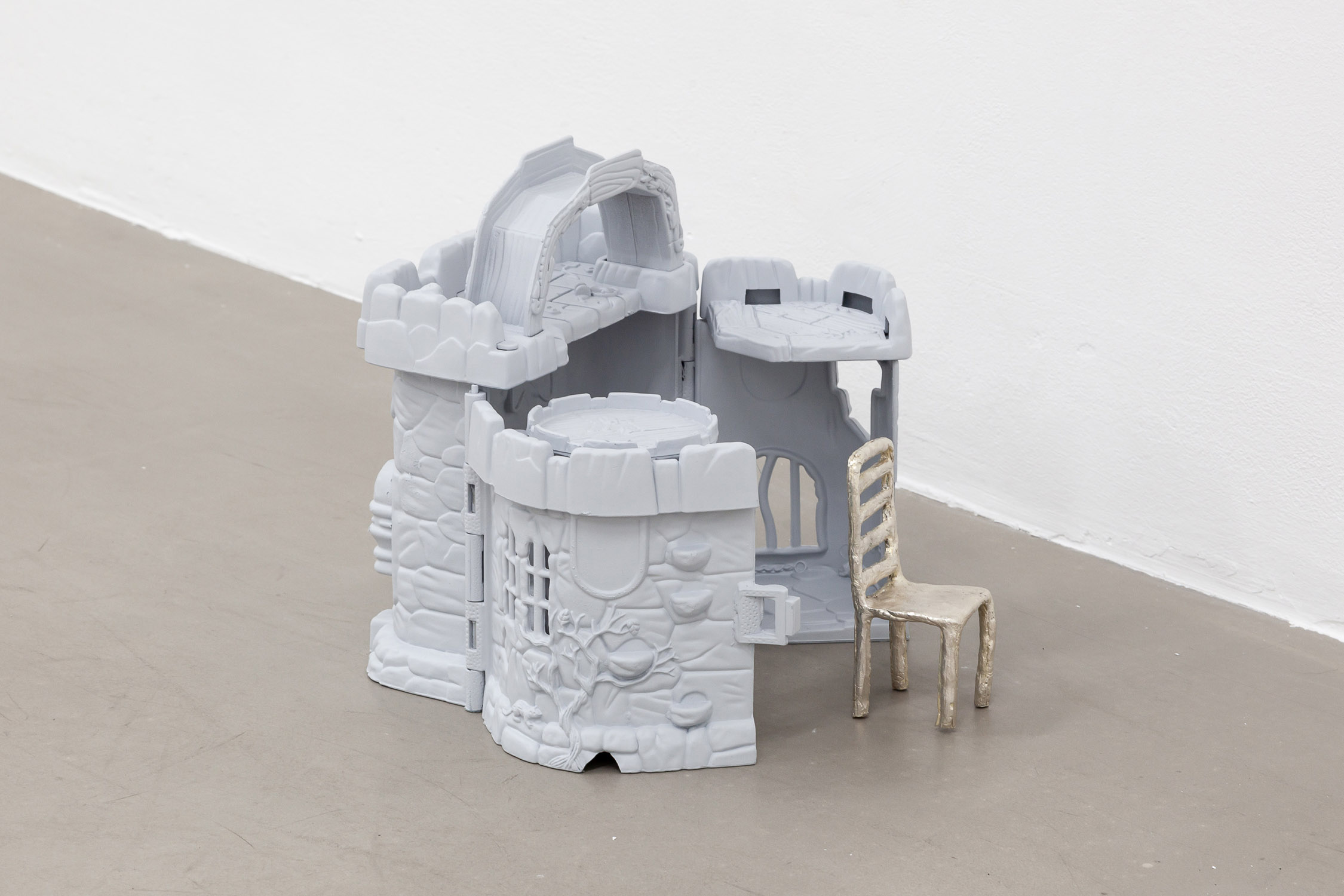
Right: Ellen Schafer, My Life As Chair X, 2024, silver plated brass, 10 x 4.5 x 4 cm, © the artist and Wonnerth Dejaco. Photo: Flavio Palasciano
